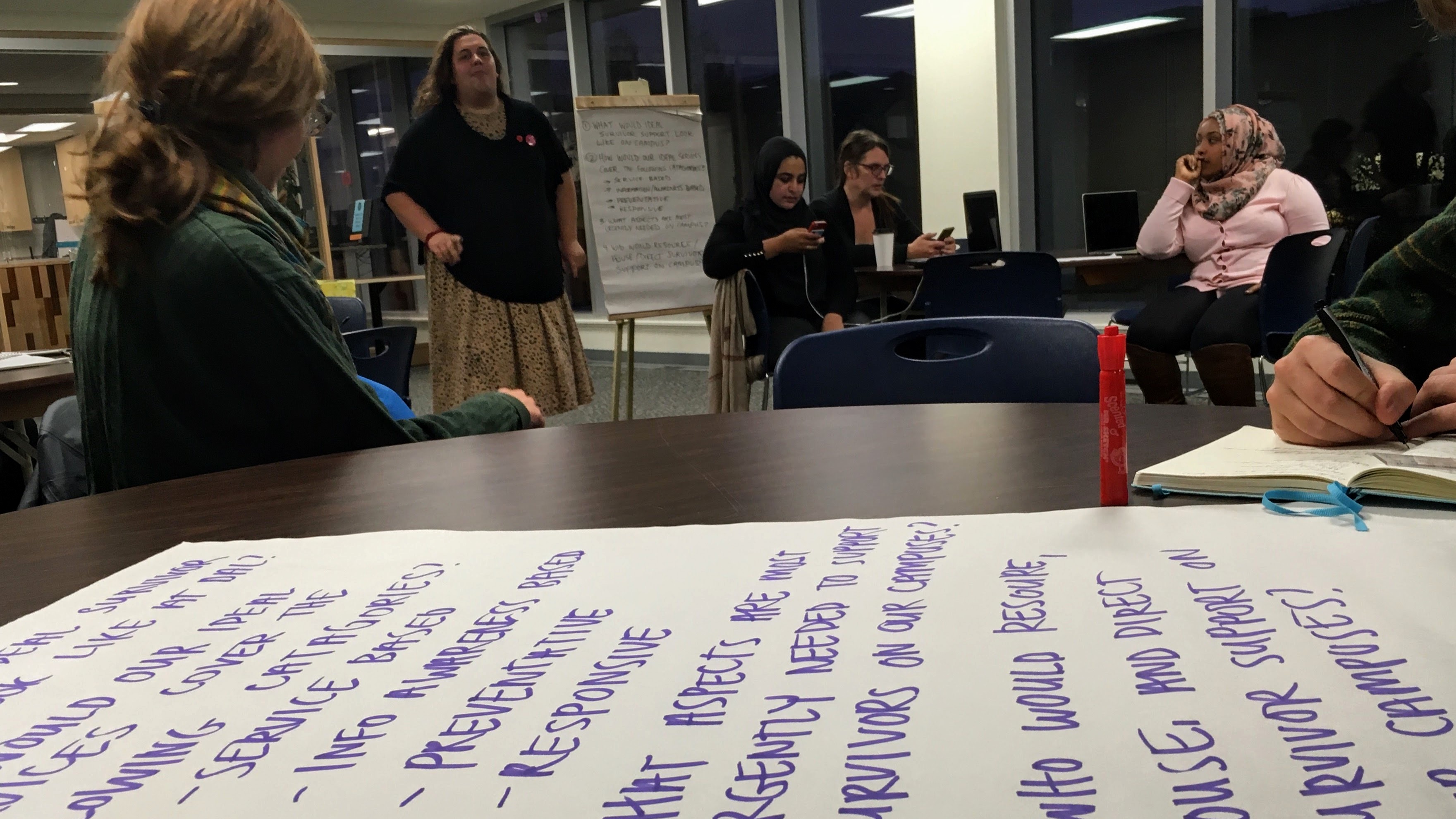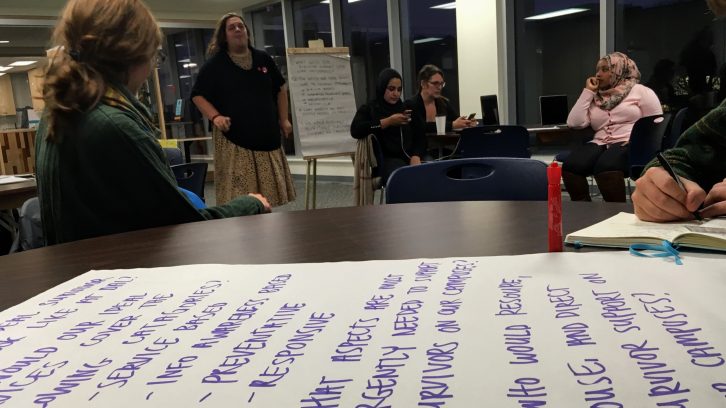Sexual Assault
Dal students brainstorm as sexual assault help line ends
Sessions seek input on providing support on campus

caption
Rhiannon Makohoniuk, standing, presents some ideas that her table discussed during the strategy session.
caption
Rhiannon Makohoniuk, standing, presents the ideas her table discussed during a sexual assault help line strategy session.The Dalhousie Student Union held a brainstorming session Tuesday to discuss the kind of support that should be provided for sexual assault survivors on campus when a help line service ends.
This year Dalhousie University offered only $15,000 of the $30,000 needed to keep the Sexual Assault and Harassment phone line afloat. The service, established last September, provides direction for survivors of sexual violence, offers access to resources and services as well as support for survivors who simply want to talk.
The phone line will operate for the first eight weeks of classes, the time of year when sexual assaults peak on campus, says Rhiannon Makohoniuk, the student union’s vice president internal. The service, which ends on Nov. 3, has one phone which is answered by a small group of trained volunteers.
Over the last few months, Makohoniuk has been drafting guidelines around how sexual assault should be reported and handled by the university. She is hoping these strategy sessions will engage students and push the university to provide student-led support for survivors.
The brainstorming sessions are being used to show the student union how they can offer sexual assault support once the service ends. Participants stressed the need for support to be inclusive of all people, specialized towards survivors, and have few barriers that discourage students from using it, such as long waiting periods.
“This service has to be student-led, it has to be student driven, and it has to be effective for students,” says Rebecca Faria, the phone line’s coordinator. “It can’t just be an ideal imposed from the administration.”
Faria hopes that ideas generated from the sessions can help shape what’s next, whether it’s presenting models to the university or finding alternate ways to fund support on campus.
“In whatever hours are left, I am spending that time working with DSU staff and folks from societies to try and make sure that some form of survivor support is sustained,” says Faria.
The second strategy session of Survivor Support on Campus is on Oct. 6.
